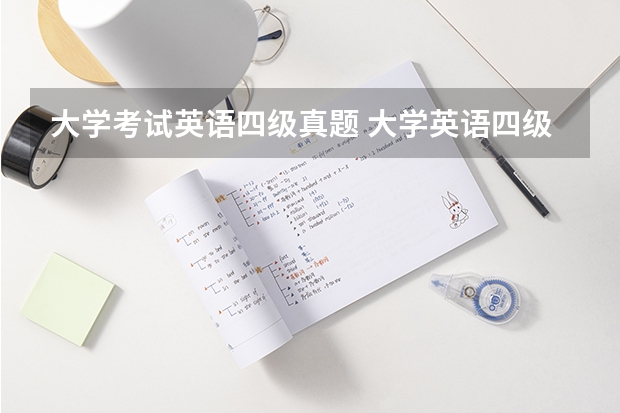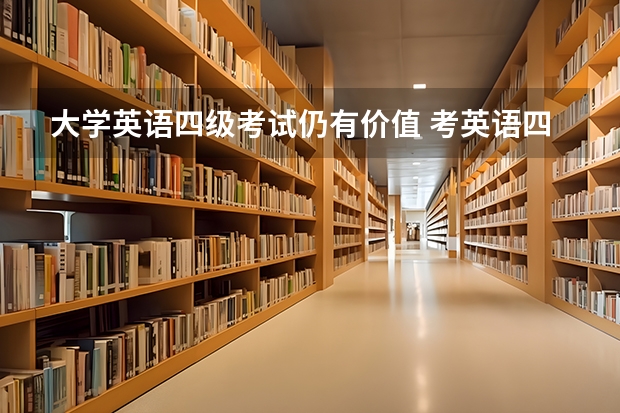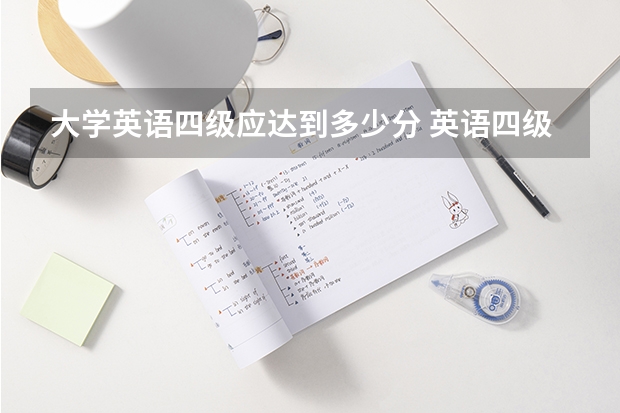大学考试英语四级真题 大学英语四级考试听力真题原文
2023-09-08 19:23:24 | 蜕变培训网

2020年7月大学英语四级真题:完形填空原文及答案
Part Ⅲ Reading Comprehension (40 minutes)
Section A
Directions: In this section, there is a passage with ten blanks. You are required to select one word for each blank from a list of choices given in a word bank following the passage. Read the passage through carefully before making your choices. Each choice in the bank is identified by a letter. Please mark the corresponding letter for each item on Answer Sheet 2 with a single line through the centre. You may not use any of the words in the bank more than once.
Questions 26 to 35 are based on the following passage.
“Science and everyday life cannot and should not be separated." Those were the words uttered by pioneering British scientist Rosalind Franklin, who firmly believed that the pursuit of science should be (26) to all.
As a woman working in the first half of the 20th century, Franklin’.s contributions to some of the greatest scientific discoveries of our time - including the structure of DNA - were sadly
(27) in her lifetime. One of my proudest moments in my role as universities and science minister was being able to go some way to redress this injustice last month, by unveiling the new Mars rover named after this brilliant British scientist.
Today, on International Women’ s Day, it is only right that we recognize the important work of female scientists like Franklin and seek to honour her memory by inspiring more women and girls to follow in her footsteps.
More than 60 years after Franklin’ s death, we are (28) living in a different world, where women play an important part in every echelon of our society-not least in science, innovation, higher education and research.
UK universities are world leaders when it comes to advancing and (29) gender equality. The Athena SWAN charter, initially established to improve the representation of women in scientific disciplines in higher education, now has 145 members. It has also expanded to promote gender equality in multiple disciplines-including the arts, social sciences, humanities, business and law.
In the past decade, we have seen a (30) increase in England in the number of women accepted on to full-time undergraduate degrees in science, technology, engineering and maths (Stem subjects). And in the last academic year, women (31) for more than half of all Stem postgraduates at UK universities. The government is taking further steps to improve women’ s representation in science and has today awarded nine inspiring women £50,000 to develop inventions to tackle the challenges and seize the opportunities we face as a society. From new materials to cut down on plastics pollution to special devices to improve posture and comfort for wheelchair users, these women are at the forefront of creating the new technology for tomorrow.
This is significant progress, but access to higher education is only half of the equation. To have real equality in the sector, we need to ensure talented women are able to progress into the academic and leadership roles they desire, and get the remuneration they deserve.
Data shows us the (32) to success gets harder for women to climb the further up they go.
Although women make up the majority of undergraduates in our universities, just under half of academic staff are female. At (33) levels, only a quarter of professors are women, and black women make up less than 2% of all female academic staff.
I welcome the introduction of pro-active strategies like the new initiative at the University of
Leicester, which I am visiting today, to increase the number of female professors by 1.5% each year,with the overall goal of having 30% professorships held by women by 2020.
There are also stark differences in pay across grades. The gender pay gap based on median salaries across the sector in 2016-17 was 13.7%, (34) there is still some way to go to ensure women are rising through the ranks to higher grade positions and being paid (35) .
答案:
26. A) accessible
27. J) overlooked
28. O) thankfully
29. K) promoting
30. E) considerable
31. B) accounted
32. G) ladder
33. L) senior
34. N) suggesting
35. D) appropriately
以上内容是青藤小编为您整理的2020年7月 大学英语四级真题 及答案,更多关于 大学英语四级考试 的备考技巧,备考干货,新闻资讯等内容,请大家及时关注本平台,祝愿各位考生都能取得满意的成绩!

大学英语四级考试听力真题原文
下面是我整理的大学英语四级考试听力真题原文,希望对大家有帮助。
2013年6月大学英语四级真题-听力原文 蜕变培训网
Part III Listening Comprehension
Section A
Directions:In this section, you will hear 8 short conversations and2 long conversations. At the end of each conversation, one or more questions will be asked about what was said. Both the conversation and the questions will be spoken only once. After each question there will be a pause. During the pause, you must read the four choices marked A), B), C) and D), and decide which is the best answer. Then mark the corresponding letter on Answer Sheet 2 with a single line through the center.
11. W: What are you doing in here, Sir? Didn't you see the private sign over there?
M: I'm sorry. I didn't notice it when I came in. I'm looking for the manager's office.
Q: What do we learn from the conversation?
12. W: Mike, what's the problem? You've known from month the report is due today.
M: I know, but I'm afraid I need another few days. The data is hard to interpret than I expected.
Q: What does the man mean?
13. W: Excuse me, Tony. Has my parcel from New York arrived?
M: Unfortunately, it's been delayed due to the bad weather.
Q: What is the woman waiting for?
14. W: Pam said we won't have the psychology test until the end of next week.
M: Ellen, you should know better than to take Pam's words for anything.
Q: What doesthe man imply about Pam?
15. W: Tom, would you please watch my suitcase for a minute? I need to go make a quick phone call.
M: Yeah, sure. Take your time. Our train doesn‘t leave for another twenty minutes.
Q: What does the man mean?
16. M: Frankly, Mary is not what I'd called easy-going.
W: I see. People in our neighborhood find it hard to believe she's my twin sister.
Q: What does the woman imply?
17. M: How soon do you think this can be cleaned?
W: We have same day service, sir. You can pick up your suit after five o'clock.
Q: Where does the conversation most probably take place?
18. W: I really enjoy that piece you just play on the piano. I bet you get a lot of requests for it.
M: You said it. People just can't get enough of it.
Q: What do we learn from the conversation?
Section B
Questions 19-22 are based on the conversation you have just heard.
W: Good afternoon, Mr. Jones. I am Teresa Chen, and I‘ll be interviewing you. How are you today?
M: I am fine, thank you. And you, Miss Chen?
W: Good, Thanks. Can you tell me something about your experience in this kind of work?
M: Well, for several years, I managed a department for the Brownstone Company in Detroit, Michigan. Now I work part time because I also go to school at night. I‘m getting a business degree.
W: Oh, how interesting. Tell me, why do you want to leave your present job?
M: I‘ll finish school in a few months, and I’d like a full-time position with more responsibility.
W: And why would you like to work for our company?
M: Because I know your company‘s work and I like it.
W: Could you please tell me about your special skills and interests?
M: Of course, I‘m good at computers and I can speak Spanish. I used to take classes in Spanish at the local college. And I like travelling a lot.
W: Can you give me any references?
M: Yes, certainly. You can talk to Mr. McCaw, my boss, at the Brownstone Company. I could also give you the names and numbers of several of my teachers.
W: All right, Mr. Jones, and would you like to ask me any questions?
M: Yes, I wonder when I‘ll be informed about my application for the job.
W: Well, we’ll let you know as soon as possible. Let‘s stay in touch. Thank you very much for coming this afternoon.
M: Thank you. Questions 19-22 are based on the conversation you have just heard.
19. What does the man say about his working experience?
20. Why does the man want to leave his present job?
21. What is the man interested in?
22. What question did the man ask the woman?
Questions 23-25 are based on the conversation you have just heard.
M: Lisa, Lisa! Over here, darling! It's wonderful to see you. Oh, Lisa, you look marvelous.
W: Oh, Paul, you look tired. Two months away in the capital? Paul, I think you've been working too hard.
M: I'm fine. The city is very hot this time of the year. It's good to get back to some fresh air. You know, Lisa, what they say about pregnant women really is true.
W: What's that Paul?
M: They say they look beautiful.
W: Well, I had a lot of tension while you've been studying hard on your course in D.C.
M: Oh?
W: Oh, don't worry, all from a man over
50. Father has told all his business friends the good news about the baby. And the phone hasn't stopped ringing.
M: Oh, look, darling. There's a taxi.
W: Paul, tell me about the special project you mentioned on the phone. You sounded very excited about it!
M: You know, I've learned a lot from the project. I'm surprised that was still in business.
W: That's because we have a wonderful sales manager ——you!
M: Thanks. But that's not the problem at all. Lisa, our little company, and it is little compared to the giants in the city. Our little company's in danger. We are out of date.We need to expand. If we don't, we will be swallowed up by one of the giants.
Questions 23-25 are based on the conversation you have just heard.
23. What do we learn about Lisa?
24. What do we learn about the man from the conversation?
25. What does the man say about his company?
Section C
Passage 1
Questions 26 to 29 are based on the passage you have just heard.
Farmington, Utah, is a more pleasant community since a local girls' 4-H club improved Main Street. Six 4-H girls worked to clean the 72 foot curbside that was covered with weeds, rocks and trash. Each member volunteered to clean up and to dig in plot, five flats of flowers. They also took terms in watering, weeding and maintaining the plot. Participation in this project helped the girls developed a new attitude towards their parents of their own homes; they've learned how to work with tools, and improve their work habits. One mother said that before her daughter was involved in this project, she would not even pour a weed. The experience on Main Street stimulated self-improvement, and encouraged members to take pride in their home grounds and the total community. City officials cooperated with the 4-H members in planting trees, building cooking facilities, pick-me tables, swings and public rest rooms. The 4-H girls planted trees and took care of them during the early stages of growth. The total park project needed more plantings in the following years. Members of the 4-H club agreed to follow the project through to completion, because they receive satisfaction from the results of constructive work. The project is a growing one and is spread from the park to the school and the shopping center. Trees and flowers have all been planted in the shopping center, making the atmosphere pleasant.
Questions 26 to 29 are based on the passage you have just heard.
26. What do we learn about Main Street in Farmington?
27. What do the 4-H club members do about the curbside?
28. What have the 4-H girls learned from the project?
29. Why do the 4-H girls agree to follow the park project through to complete. Question 30 to 32 are based on the passage you have just heard. Passage 2 According to a survey on reading conducted in 2001 by the U.S. National Education Association (NEA), young Americans say reading is important, more important than computers and science. Over 50% of the 12 to 18 years old interviewed say they enjoy reading a lot. 79% find it stimulating and interesting. And 87% think it is relaxing. About 68% of those surveyed disagreed with the opinion that reading is boring or old-fashioned. Over half teenagers interviewed said they read more than ten books a year. The results also show that middle school students read more books than high schoolers. Over 66% of teens like to read fiction, such as novels and stories. Over 26% are interested in non-fiction, such history books.64% of students listed reading stories about people my own age. That's a favorite topic. Mysteries and detective stories came second on the list at 53%. Just under 50% said they were interested in reading about their own culture in tradition. Of the teenagers who participated in the survey, 49% said that libraries are where they get most of their books. However, many complain that their school libraries do not have enough up-to-date interesting books and magazines. Even though many teenagers in the US enjoy reading, they still have other interests. When asked which activity would be the most difficult to give up for a week, 48% said listening to music. TV would be difficult to give up for 25% of those surveyed.
Question 30 to 32 are based on the passage you have just heard.
30. What does the survey on teenager reading show?
31. What books are most popular among teenagers according to the survey?
32. What activity do teenagers find the most difficult to give up for a week?
Questions 33-35 are based on the passage you have just heard.
Passage 3
Thank you for coming, everyone. Today‘s presentation will show how we see the development of the motor car in the short to medium term, and that is why we have invited all of you here today. Let’s start with power. It‘s clear that petrol-driven engines have no future. Already there are many alternative fuel vehicles on the market, powered by anything from solar power to natural gas. Some independent thinkers have even produced cars that run on vegetable oil. But as we all know, of all these alternative fuel vehicles, the most practical are electric vehicles. Sure, in the past electric vehicles have their problems, namely, a limited driving range, and very few recharging points, which limited their use. Now, however, recent developments in electric vehicle technology mean they can match conventional petrol engines in terms of performance and safety. Let’s not forget that electric vehicles are cleaner. Plus, importantly, the power source is rechargeable, so this does not involve using any valuable resources. Moving on to communications, very soon, cars will be linked to GPS satellites, so they‘ll do all the driving for you. What controls remain for the users will be audio-based, so, for example, you’ll just have to say “a bit warmer”, and the air conditioning will adjust automatically. You‘ll also be able to receive email, music and movies, all via an internet link. So just type in the destination you want, sit back, sleep, watch your movie, whatever. Questions
33-35 are based on the passage you have just heard.
33. What is the presentation mainly about?
34. What used to restrict the use of electric vehicles?
35. What does the speaker say about electric vehicles of today?

大学英语四级考试听力及答案
23年6月大学英语四级考试听力解析,22-25题,附原文中文翻译
2023年6月大学英语四级考试听力部分,第22-25题,原文是关于午睡价值的科技小文,难度不大,和高考英语听力最后一篇的难度差不多,在大学听力考试里面,应当算作是送分题了。
全文一共出现14处影响理解的词组短语固定用法和难词偏词,《高中英语1.5万考点》和《睡眠记忆法配套词表》全部命中。
听力原文全文翻译:
在“梦想屋”(Dreamery),你可以购买小睡服务,这时在曼哈顿的一个生意。在一个昏暗的封闭空间里,享受宁静祥和的45分钟小睡,需要25美元。要明确一点,这个机构不是一家酒店。这是一个小睡场所。它销售的不仅是小睡本身,还有小睡的理念。
一个小睡值得25美元吗?答案显然是肯定的。现在关于这一点的讨论,我通常会提到所有显示小睡益处的研究。但你真的需要专家来告诉你这个吗?只需要看看下午2:30你周围的世界在干啥。
我已经在家工作超过10年了。我集中注意力的能力直接会影响我所做的工作的质量和数量。我不明白人们如何在没有小睡的情况下从事创意工作。每天大约在下午1点左右,每个人都面临着同样的选择:睡到下午2点,然后工作到下午5点,或者做白日梦,浏览社交媒体,参加毫无意义的会议,直到晚上7点。
我有些朋友仍然在办公室工作,他们告诉我他们的老板坚持让他们选择第二个选项,并认为小睡与懒惰有关。我真的觉得这很奇怪。因为如果你适当地小睡,就像从一个完整的夜间睡眠中醒来一样,你可以让你一天的注意力加倍。
22. 关于曼哈顿的“梦想屋”的生意,我们了解到什么?
23. 说话人为什么要求我们在下午2:30时看看周围的世界?
24. 我们从说话人口中了解到他的工作质量和数量方面的什么情况?
25. 说话人说他觉得什么事情很奇怪?
22 A) 它研究梦境。 B) 它为小睡者租用场所。
C) 它是商务人士的酒店。D) 它是一个小睡研究机构。
23 A) 了解创意人士的工作表现。B) 看看有多少人可以不小睡。
C) 理解小睡显而易见的重要性。D) 感受自己的观点很难传达。
24 A) 由于毫无意义的会议,他们效率下降了。B) 他们依赖于他的专注能力。
C) 它们使他能够享受创意职业。D) 它们受到社交媒体过度使用的影响。
25 A) 一些老板将小睡与懒惰联系在一起。B) 许多办公室的员工在工作时间小睡。
C) 一些老板可以在没有小睡的情况下集中注意力。D) 他的许多朋友在办公室做白日梦。
以上就是蜕变培训网小编为大家带来的大学考试英语四级真题 大学英语四级考试听力真题原文,希望对大家有帮助,了解更多相关资讯请关注蜕变培训网。
大学英语四级考试听力真题原文下面是我整理的大学英语四级考试听力真题原文,希望对大家有帮助。2013年6月大学英语四级真题-听力原文PartIIIListeningComprehensionSectionADirections:Inthissection,youwillhear8shortconversationsand2longconversations.Att

大学英语四级考试听力真题原文下面是我整理的大学英语四级考试听力真题原文,希望对大家有帮助。2013年6月大学英语四级真题-听力原文PartIIIListeningComprehensionSectionADirections:Inthissection,youwillhear8shortconversationsand2longconversations.Att

大学英语四级考试听力真题原文下面是我整理的大学英语四级考试听力真题原文,希望对大家有帮助。2013年6月大学英语四级真题-听力原文PartIIIListeningComprehensionSectionADirections:Inthissection,youwillhear8shortconversationsand2longconversations.Att

大学英语四级考试听力真题原文下面是我整理的大学英语四级考试听力真题原文,希望对大家有帮助。2013年6月大学英语四级真题-听力原文PartIIIListeningComprehensionSectionADirections:Inthissection,youwillhear8shortconversationsand2longconversations.Att

大学英语四级考试听力真题原文下面是我整理的大学英语四级考试听力真题原文,希望对大家有帮助。2013年6月大学英语四级真题-听力原文PartIIIListeningComprehensionSectionADirections:Inthissection,youwillhear8shortconversationsand2longconversations.Att

大学英语四六级听力的考查模式(举实例)一、四六级英语听力的考查模式1.对话听力部分一般是20个小题,由a和b两部分组成。第一部分通常是10个对话,每个对话设一个小题,要求同学们根据对话内容从四个选项中选择正确答案。2.短文b部分有两种形式,一是听短文。一般是三篇120-140字之间的短文,每篇短文后有三到四个问题,共10道小题。该部分主要测试同学们的整体理解能力。

2014年6月大学英语四级听力真题及答案再过半个月就要进行英语四级考试了,这时候同学们可以赶紧做做真题来找到考试的感觉,通过做真题你会发现一些规律,找到解题方法。为大家准备了2014年6月英语四级考试听力真题及答案,一起来看看吧!有需要的朋友可以收藏起来!2014年6月大学英语四级听力真题及答案ListeningComprehension(30minutes)Section

大学英语四级考试听力真题原文下面是我整理的大学英语四级考试听力真题原文,希望对大家有帮助。2013年6月大学英语四级真题-听力原文PartIIIListeningComprehensionSectionADirections:Inthissection,youwillhear8shortconversationsand2longconversations.Att
- 什么是大学英语四六级 是有年龄学历限制的吗
- 2023年6级考试时间下半年(四级报名截止时间2023下半年)
- 求大学英语四级历年真题下载地址,有没有好的推荐(我需要 四六级历年真题,百度网盘的链接有没有呀~求哥哥姐姐们分享)
- 大学几年级可以考英语四级(我是英语专业的,大学几年级考四六级,专四专八?最好具体点,是上半学期还是下半学期?谢谢!)
- 四六级几号考(四六级考试时间 英语听力耳机 济大学一)
- 六级报名和考试时间 英语四级考试 关于英语四六级考试的~~
- 4级和6级满分多少分?
- 大学英语四六级考试写作题型分析及范文(3)(英语六级的书信作文)
- 广东英语四级考试时间(广东省英语四六级考试报名时间)
- 四六级成绩报告单编号是什么意思
- 江苏省2023年四六级考试时间(江苏省四级考试时间2022年下半年)
- 湖北英语四六级考试时间2023 湖北四六级考试时间2023下半年 下半年湖北英语四六级考试安排
-
 大学英语四级考试仍有价值 考英语四六级真的有用吗?
大学英语四级考试仍有价值 考英语四六级真的有用吗?2023-09-16 15:58:42
-
 大学英语四级考试如何调频率 考四级收音机怎么调频
大学英语四级考试如何调频率 考四级收音机怎么调频2023-09-16 02:05:02
-
 拉萨师范大学英语四级考试 四级英语考试报名时间是什么时候啊?
拉萨师范大学英语四级考试 四级英语考试报名时间是什么时候啊?2023-09-16 02:51:47
-
 大学英语四级应达到多少分 英语四级需要多少分
大学英语四级应达到多少分 英语四级需要多少分2023-09-30 18:46:49
-
 大学英语四级考试赋分标准 英语四级分数赋分标准
大学英语四级考试赋分标准 英语四级分数赋分标准2023-09-09 04:27:27
-
 大学英语四级证多少钱 考英语四六级需要多少钱
大学英语四级证多少钱 考英语四六级需要多少钱2023-09-28 20:21:35